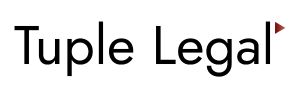Art Meets Artificial Intelligence at this San Francisco Nonprofit

The Misalignment Museum, founded by Audrey Kim in San Francisco, recently garnered international attention with a feature in The New York Times. The museum uses art to explore the ethical implications and potential risks of artificial intelligence (AI), sparking public dialogue on AI misalignment and its possible impact on society.
“It’s definitely a big topic that’s affecting us all, and we should have everyone who is affected by it be part of the conversation,” said Kim to the Times.
“Misalignment” refers to situations where an AI system’s goals or actions diverge from human intentions or values. Misalignment can happen when AI systems interpret instructions in unintended ways, or optimize for objectives that overlook broader human consequences.
Audrey Kim, an artist and former tech professional, initially launched the museum to bridge the gap between rapid AI advancements and public understanding of their risks. But after realizing there was no clear consensus on what those risks were, she began focusing on education.
Through art, Misalignment Museum introduces visitors to complex AI concepts, illustrating the challenges of aligning machine behavior with human values.
Kim’s approach combines tech insights with artistic expression, creating a space for AI ethics that is rare in both the tech and art worlds. Her innovative focus is one reason The New York Times took note, celebrating the museum’s mission and growing influence.
At Tuple Legal, we’re thrilled to support the Misalignment Museum’s journey and its commitment to sparking thoughtful discussion on AI. To learn more, visit the museum’s website or plan a visit to experience this thought-provoking space firsthand.
